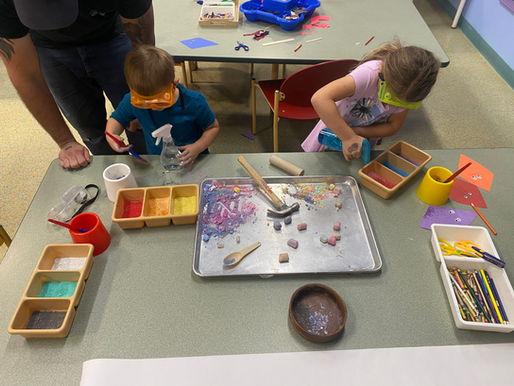top of page
Open late on Fridays through February.

Blog
.png)
Little Minds, Big Discoveries


Play at Home: Simple Activities to Nurture Your Toddler’s Growth
Parenting a toddler can feel both exciting and overwhelming. Every day brings new discoveries along with new questions about how to...
Aug 29, 20252 min read


Breaking Barriers: How Our Birth-to-Three Program Supports Families Before They Fall Through the Cracks
At the Children's Museum in Oak Lawn, we believe every child deserves the best possible start—no matter their zip code, income level, or...
Jul 25, 20252 min read


Why We Updated Our Vision and Education Statement — And What It Means for You
At the Children’s Museum in Oak Lawn, our mission has always been clear: to positively impact a child's potential in life through...
Jun 23, 20253 min read


Exhibit Design and Preschoolers’ Peer Relationship Skills
Dr. Nicole Rivera, North Central College, Department of Psychology & Neuroscience Children share art supplies to create kites. A child...
Jun 13, 20252 min read


Behind the Exhibits: How Play Becomes Learning
At the Children's Museum in Oak Lawn, we believe that play is more than just fun—it's a powerful tool for learning. Our exhibits are...
May 19, 20253 min read


Why Play Matters: The Science Behind Hands-On Learning
Play is one of the most important—and often underestimated—drivers of childhood development. At first glance, it may look like simple...
Apr 10, 20254 min read
bottom of page
.png)